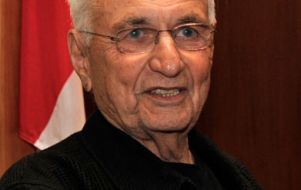Top 10 Iconic Artworks Celebrating American Independence
As the United States celebrates Independence Day, the country annually shows down to reminisce over the historical significance and contemplate art to express the bare truth about the liberating spirit, individuality, and societal transformation. From photographs that capture unparalleled historical moments to abstract sculptures that reflect on existing national ideologies, these images represent a unique attempt at identifying the interplay between artistic freedom and nationalism. Each piece on this list encourages viewers to investigate artists' works as deeply and broadly as possible, using the concept of "American Independence" as a guide.
Declaration of Independence by John Trumbull, 1817
People often mistake John Trumbull's painting for the signing of the Declaration of Independence. Trumbull captures the important turning point in American history, the Founding Fathers presenting the draft to Congress in minute detail.
Barbecue by Eric Fischl, 1982
Looking into the more symbolic meaning of art, Eric Fischl's artwork portrays the American suburban intensity by depicting a summer barbecue as a contaminated moment. It compares and contrasts purity with the underlying social issues.
America (Baseball) R. B. Kitaj, 1983-84
R. B. Kitaj challenges abstract art dominance with emotive, figurative portrayals. "Amerika (Baseball)" submerges viewers in a surreal pool of baseball players, symbolizing the fervor of America's national pastime.
The Old Dump Flag by Claes Oldenburg, 1960
Claes Oldenburg transforms beach-combed debris into thought-provoking art, deconstructing and reconstructing the American flag to evoke primal symbolism.
Flag by Howard Finster, 1991
Howard Finster's folk art interpretation blends patriotism with spiritual fervor. It features iconic American symbols amidst psychedelic motifs, reflecting his unique perspective as an outsider artist.
Royal Fireworks by Helen Frankenthaler, 1975
Helen Frankenthaler's abstract expressionism bursts with vibrant colors, evoking the explosive energy of fireworks and capturing the dynamism of celebration.
The Presidential Suite. Johnson & Humphrey at L.B.J. Barbecue by Billy Apple, 1960s
Billy Apple's photographic series captures political figures casually, offering a candid glimpse into American leadership amidst everyday gatherings.
Flag by Jasper Johns, 1954-55
Jasper Johns' iconic flag paintings challenge traditional symbols of national identity by expertly blending critique and reverence using his labor-intensive encaustic technique.
Flag by Leo Villareal, 2008
Leo Villareal pioneers light art with LED installations that reimagine the American flag, inviting contemplation on the intersection of tradition and modernity in visual symbolism.
The Hole Truth by Brian Kenny, 2012
Brian Kenny's activist art deconstructs the flag as a potent symbol of protest and inclusivity, embodying the spirit of dissent and democratic values.
The following ten artworks chosen for the analysis prove how art and America intertwine in terms of historical periods and art movements. In varying degrees of detailed presentations, John Trumbull's rendition of the Declaration of Independence and Brian Kenny's dissection of the flag represents a part of the nation's story of dreams, war, and shifting culture. These artworks encourage us to think about the nature of art about, the experience of the United States, and the nature of Independence Day: art represents historical perspective and thinking that reflects both the values and the living experience of American society.
Related Article : Top 5 Famous American Artists and Their Iconic Works












